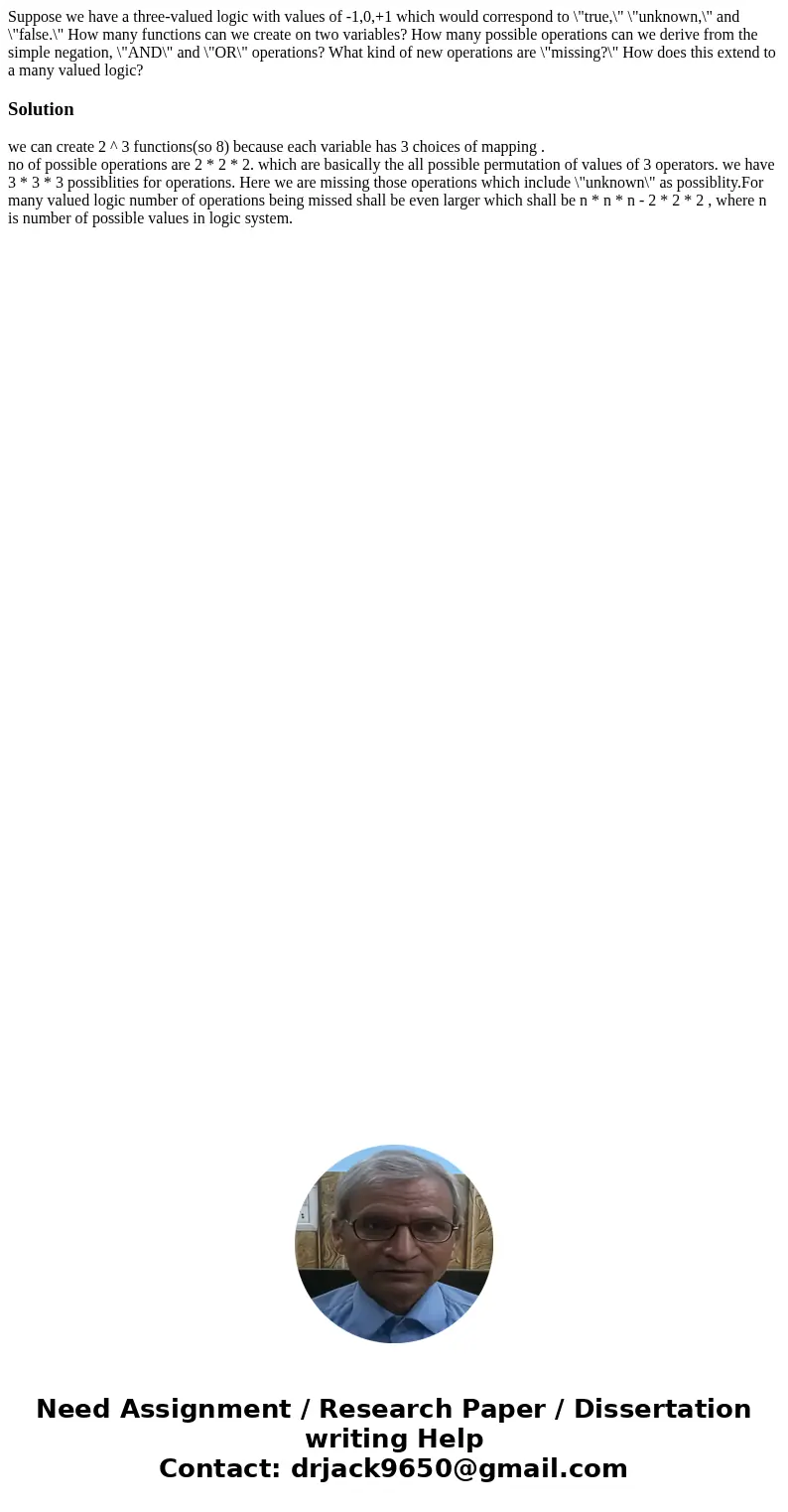Suppose we have a threevalued logic with values of 101 which
Suppose we have a three-valued logic with values of -1,0,+1 which would correspond to \"true,\" \"unknown,\" and \"false.\" How many functions can we create on two variables? How many possible operations can we derive from the simple negation, \"AND\" and \"OR\" operations? What kind of new operations are \"missing?\" How does this extend to a many valued logic?
Solution
we can create 2 ^ 3 functions(so 8) because each variable has 3 choices of mapping .
no of possible operations are 2 * 2 * 2. which are basically the all possible permutation of values of 3 operators. we have 3 * 3 * 3 possiblities for operations. Here we are missing those operations which include \"unknown\" as possiblity.For many valued logic number of operations being missed shall be even larger which shall be n * n * n - 2 * 2 * 2 , where n is number of possible values in logic system.

 Homework Sourse
Homework Sourse